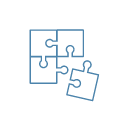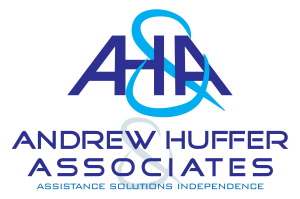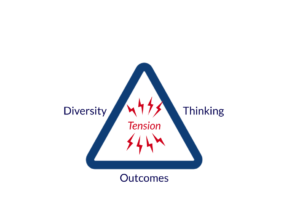How to get the best out of yourself and your groups
I want to share a framework I found particularly useful in helping to facilitate in the online space. It comes from the work of Sam Kaner from San Francisco. I’ve done some training with Sam, and he’s got some really valuable and easy to apply processes.
Sam’s model describes the role of a facilitator talks about our role is to help groups in three ways:
- Tap into the diversity of the group
- Help the group to do their thinking
- Deliver outcomes for the group
1. Tap into the diversity of the group
In this mode we need to recognize, understand and give voice to the different types of people in the group along with the range of perspectives and experiences they bring. It’s important here for us as facilitators to help them to consider each other’s views and not necessarily change them in the time they have together.
2. Help the group to do their thinking
The next one is to help them do their thinking. When I started out as a bright-eyed, idealistic facilitator I thought everything had to be fun. Lots of excitement, new processes, constant movement and everything happening quickly. I was fortunate enough to have an observer subtly tell me that I was just annoying the crap out of people. What I really needed to do was slow down and make sure people have plenty of time to do their thinking. This includes (even in the online space) some quiet time for reflection.
3. Deliver outcomes for the group
The other part, which we’re always under the pump for, I believe, is the delivery of outcomes. This is often the priority for the client, without due recognition for the other two components. Sam’s challenge for us is to keep this ‘triangle’ in some kind of balance.
Tips for applying the model
Diversity
I often use Padlet to get people connected online before a workshop. During workshops I try and get them into breakout groups as early as possible to encourage active contribution by participants. Kicking off with a quick poll is another way to get involvement 
Thinking
I recommend letting people know beforehand the broad questions you’ll be asking them to consider, so they have some 
Outcomes
The first thing I try to make sure I’m clear on well before a workshop starts is the purpose of the workshop and the 
- Purpose – What is the workshop or meeting trying to achieve?
- Outcomes – What will be the results this event produces?
- Process – What tools and techniques will you use?
Further resources
Here’s the podcast version of this post for you to listen to and share.
And as an early Christmas gift, you can get the info-graph of the Three point check in model.
PS – me and my facilitation bestie, the 500% fab Cynthia Mahoney are running your Facilitators Summer School, starting in late January 2021. First up will be ‘Facilitate Standout Online Experiences.’
It’s a four module program, held live over four weeks to help you to build, utilise and adapt your people skills into the online environment – especially when working with online groups.
Looking forward to seeing you there 😉


Reader Interactions